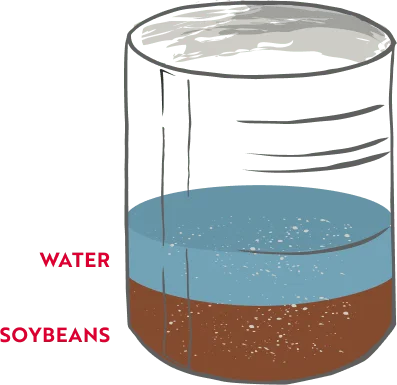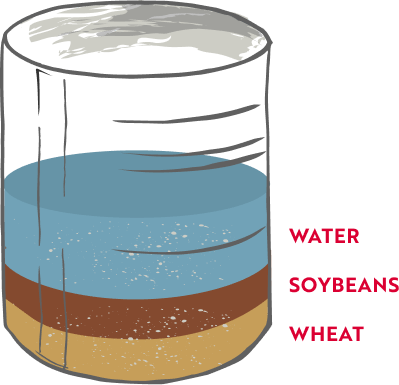
Our Tamari
Since 1804, when the Sato family first began crafting soy sauce and miso as the San-Jirushi company, a legacy of excellence and tradition was born. For over eight generations, the Sato family has passed down their time-honored methods of brewing the finest Tamari Soy Sauce, a process refined through centuries of expertise.
SAN-J Tamari Soy Sauce is distinct from typical soy sauces, which contain about 40-60% wheat. We make ours using 100% soybeans, with no wheat, resulting in a richer, bolder flavor profile. With a higher concentration of soy protein, our Tamari delivers about 30% more umami, offering a taste that is both deeper and more complex than typical soy sauces.
As the original form of Japanese soy sauce, Tamari’s heritage continues to thrive through our carefully preserved brewing techniques in our brewing facility in Virginia, USA. Each bottle of our Tamari reflects our steadfast commitment to authenticity and quality, providing a truly exceptional flavor experience that enhances the meals and moments of today’s lives.
Why Our Tamari is different
SAN-J Tamari is made with 100% soybeans and no wheat, and fermented with less water. These qualities, along with our brewmaster’s techniques, work together to create a richer, bolder flavor with about 30% more umami than typical soy sauce.
Made with more soy protein
SAN-J
Tamari

100% SOY
Typical
Soy Sauce

About
50% Soy
About
50% Wheat
MADE WITH LESS WATER
SAN-J
Tamari

Typical
Soy Sauce

Our Brewing Process
At SAN-J, we believe in the power of simplicity and quality. We use only the finest ingredients and harness the time-honored process of fermentation to craft the bold, umami-rich flavors that have become our hallmark — without taking any shortcuts.
1 Soybeans are soaked in water and cooked in large cylindrical steam cookers.


2 The cooked beans are formed into nuggets and lightly dusted with “seed koji” (aspergillus oryzae).
3 The nuggets are placed in a temperature and humidity controlled incubation chamber (“muro”).


4 During the two days in the muro, the nuggets develop fuzzy pale yellow mold.
5 The matured koji is put in fermentation tanks with salt and water, becoming moromi.


6 The moromi ages for up to 6 months under careful monitoring.
7 The moromi is wrapped between layers of press cloth, stacked in a cage, and pressed to yield the raw tamari.


8 The raw tamari is then pasteurized and filtered to produce the finished product.
9 The sauce is bottled, cased, and sent to the market.

Try San-J Tamari
Elevate your culinary experience with SAN-J Tamari sauces the perfect complement to sushi, stir-fires, marinades, and more.







